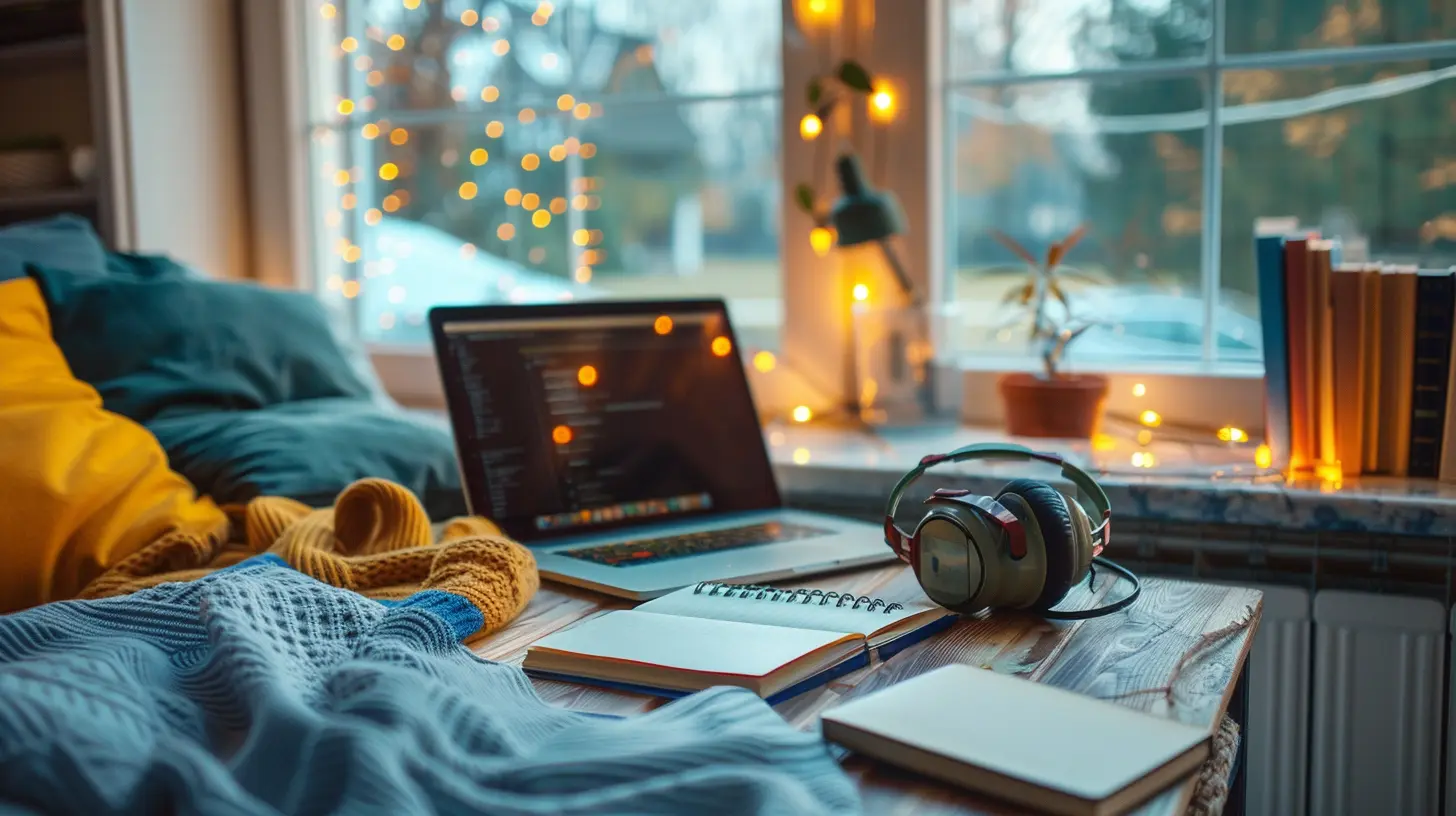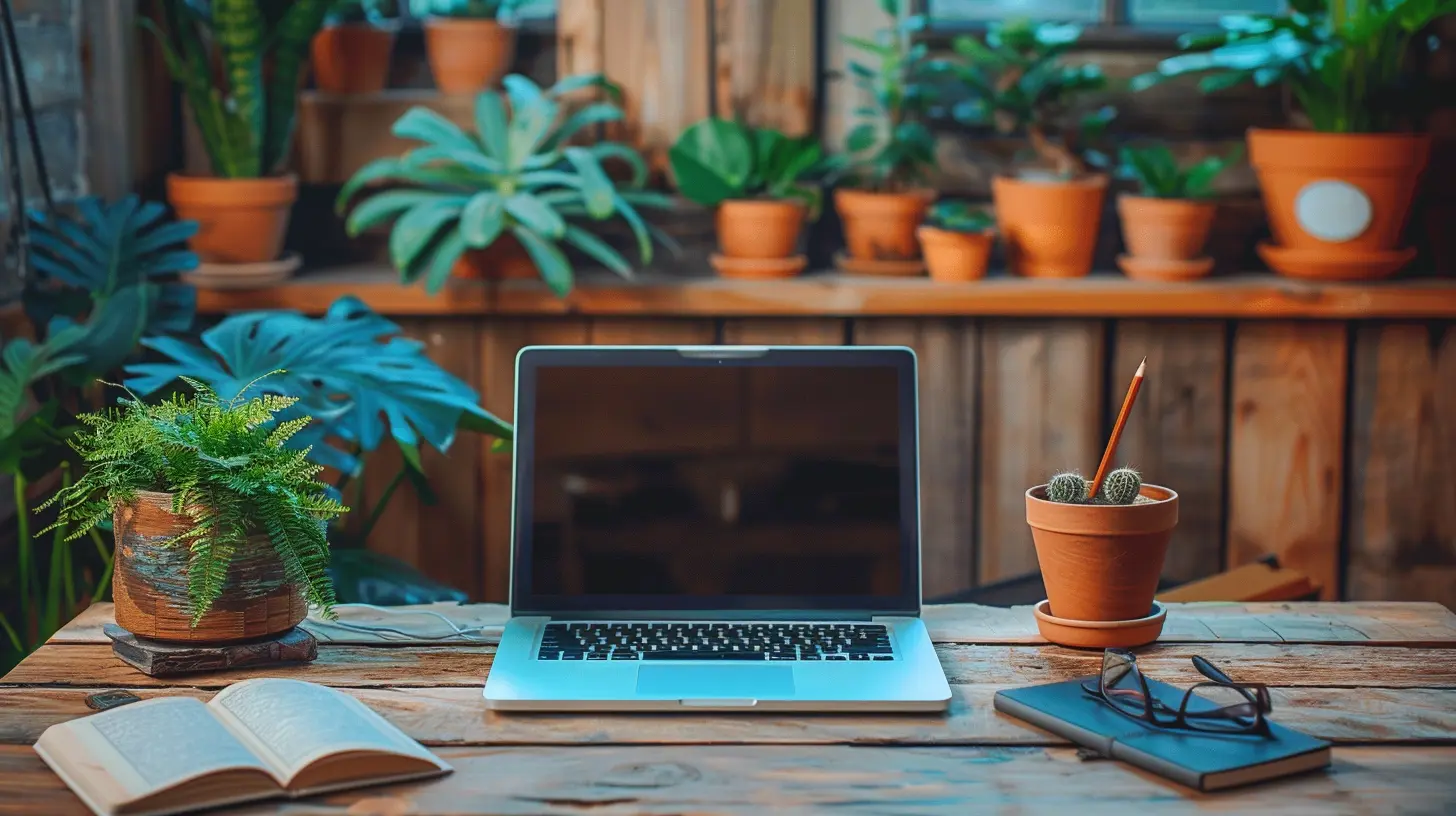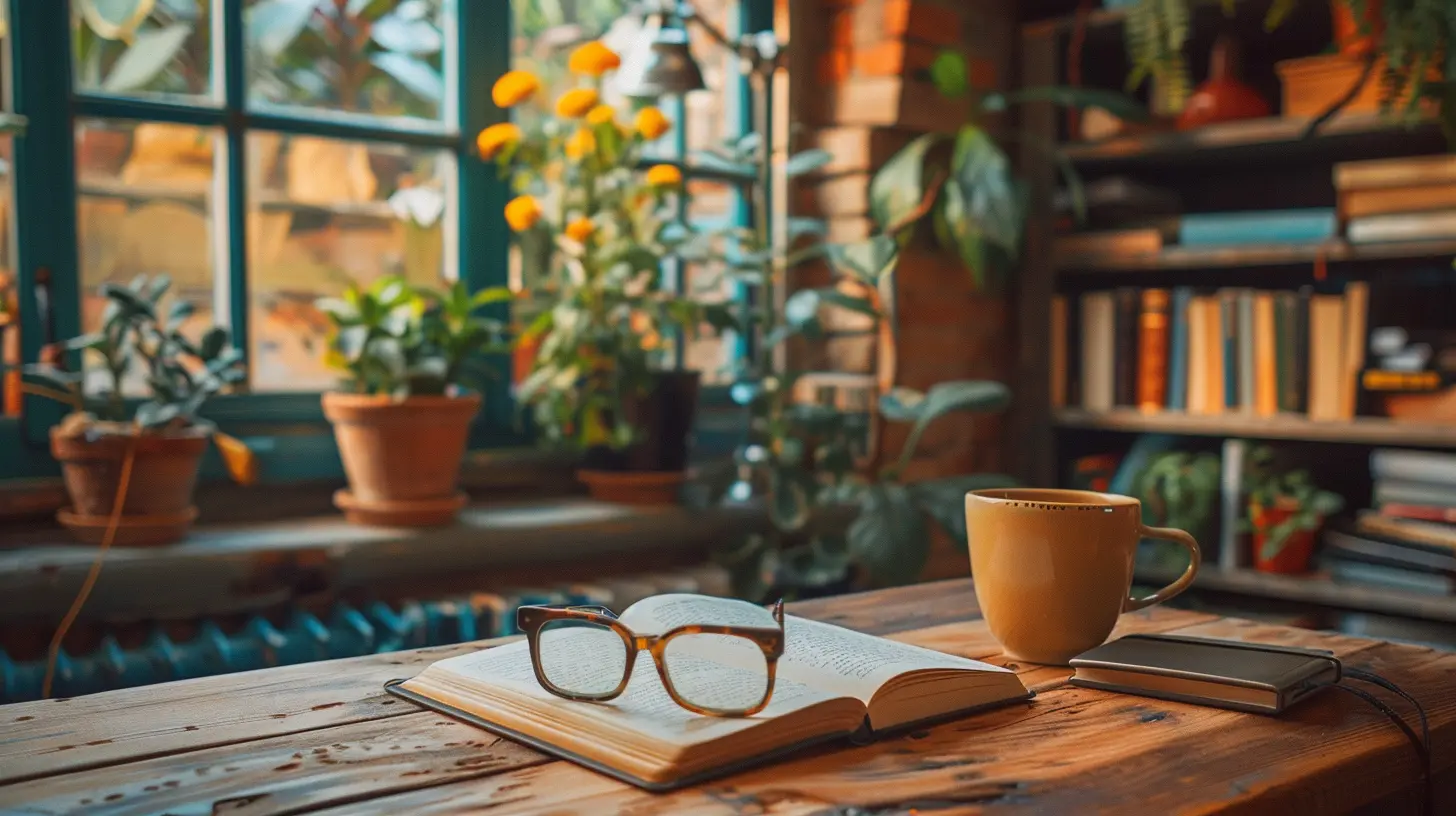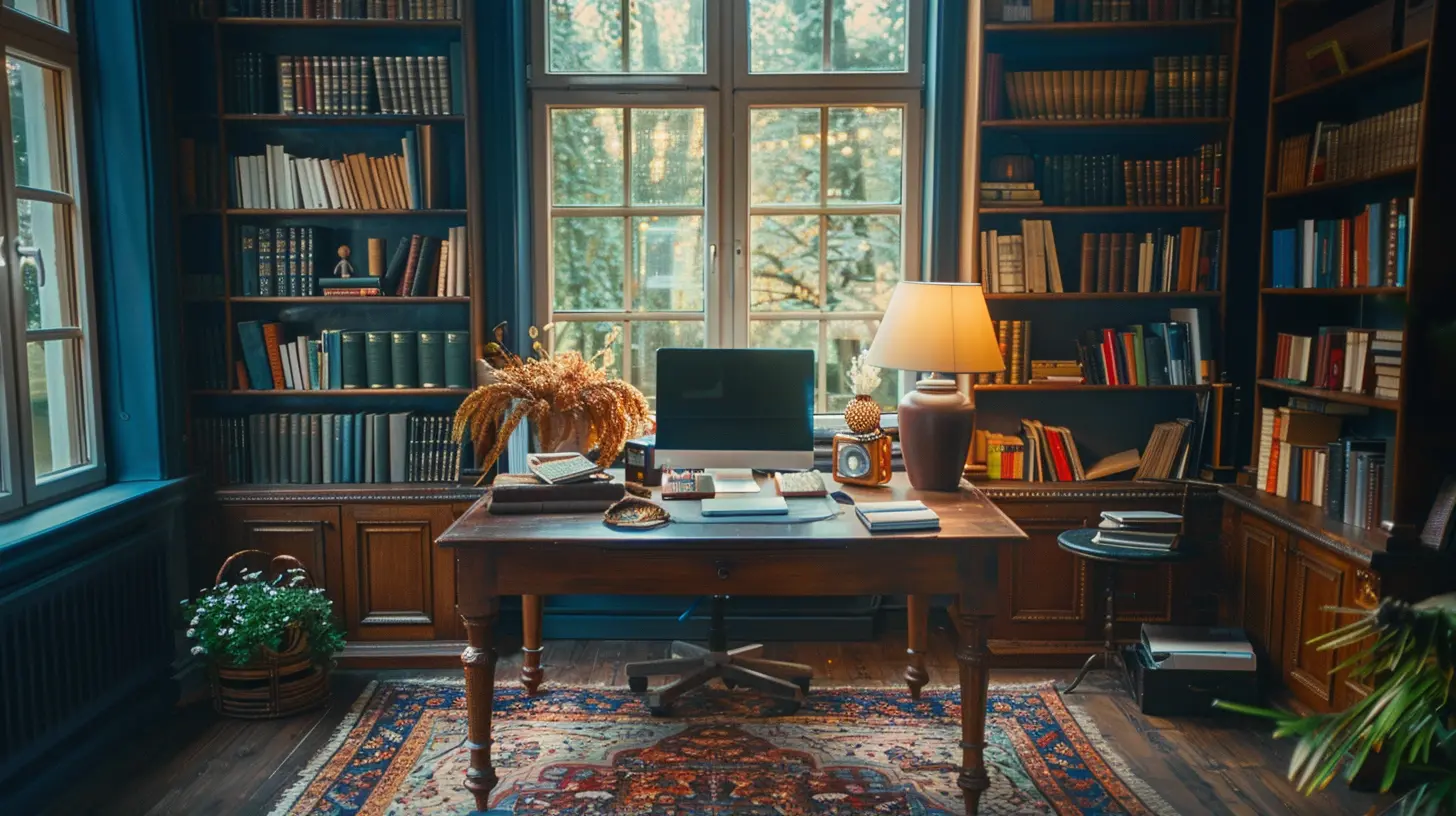How to Create the Perfect Study Environment
18 November 2025
Studying can feel like a battle sometimes, right? One moment, you're ready to conquer that textbook, and the next, you're staring at the wall, contemplating the mysteries of life. The secret weapon to staying focused? A killer study environment.
Creating the perfect study space isn’t rocket science, but getting it right can mean the difference between crushing your exams and falling asleep on your notes. So let’s break it down—how exactly do you set up a study space that keeps you productive, focused, and (somewhat) sane? 
1. Find Your Study Spot
First things first: location matters. You wouldn’t try to sleep on a rollercoaster, so why would you attempt to study in a chaotic environment?🚀 The Ideal Study Spot Should Be:
- Quiet – If your little siblings are reenacting a WWE match in the living room, it's probably not the best place.- Comfortable, But Not TOO Comfortable – Your bed may seem tempting, but let’s be honest—you’re more likely to nap than study.
- Well-lit – Straining your eyes in a dimly lit room isn’t just bad for your vision, it’s bad for your motivation.
A library, a quiet café, or a dedicated desk in your room can all be excellent choices, as long as they minimize distractions. 
2. Declutter Like Your Grades Depend on It
A messy desk = a messy mind. Science even backs this up! Clutter is known to increase stress and decrease focus. So before you hit the books, tidy up your space.🔹 Keep only the essentials – Your laptop, notebooks, pens, and perhaps a coffee (or two).
🔹 Ditch the distractions – If you don’t need your phone, put it in another room. TikTok will still be there later.
🔹 Organize your tools – A neat desk makes it easier to find what you need when you need it.
Think of your study space like a cockpit—you should have everything within reach but nothing that gets in the way. 
3. Say No to Noise (Or At Least Control It)
Silence is golden, but let’s be real—it’s not always possible. If you're stuck with background noise, make it work for you instead of against you.🎧 Options for Noise Control:
- Noise-canceling headphones – A lifesaver in noisy environments.
- Instrumental music or white noise – Studies show classical music or ambient noise can boost concentration.
- Silence (if you can get it) – Some people thrive in absolute quiet. If that’s you, find a noise-free sanctuary.
Experiment with different sounds and find what helps you focus best. 
4. Light It Up (Properly)
Good lighting isn’t just about aesthetics—it directly affects your concentration levels.☀️ Optimal Lighting Tips:
- Natural light is best – If possible, place your desk near a window.
- Use warm, soft lighting – Harsh lighting can strain your eyes.
- Avoid screen glare – Adjust your screen brightness so you’re not squinting at your laptop like a detective solving a case.
Proper lighting doesn’t just prevent eye strain, it can also boost your mood. And let’s be honest, when you’re knee-deep in textbooks, you need all the mood boosts you can get.
5. Get Comfortable (Without Turning Into a Couch Potato)
You want to be comfortable, but not so comfy that you drift off mid-sentence.🪑 The Golden Rules of Study Comfort:
- Invest in a good chair – Your back will thank you later.
- Keep your posture in check – No hunching over like a question mark.
- Move around – Sitting for hours on end isn’t just bad for your body, it also wrecks your focus.
Consider a standing desk or at least take breaks to stretch your legs. A little movement keeps your brain alert.
6. Eliminate Distractions Like a Ninja
Your phone, social media, and that random urge to reorganize your sock drawer can sabotage your study session.🛑 Ways to Minimize Distractions:
- Use the "Do Not Disturb" mode on your phone
- Block distracting websites with apps like Cold Turkey or Freedom
- Tell your family or roommates you’re in “study mode”
Distractions are sneaky, so it’s up to you to stay one step ahead.
7. The Power of Personalization
Your study space should feel like your space. If it’s boring and sterile, chances are you won’t want to spend much time there.🎨 Ways to Personalize Your Study Space:
- Add motivational quotes or posters
- Use a desk lamp you love
- Keep a small plant for some greenery
- Choose a color scheme that makes you feel productive (blue and green are great for focus!)
Your study space should be a place you enjoy being in—not one you dread sitting down at.
8. Fuel Your Brain (The Smart Way)
Let’s talk snacks. Because let’s be real—who can study without munching on something?🍎 Best Brain-Boosting Snacks:
- Nuts and seeds (for sustained energy)
- Dark chocolate (because who doesn’t love chocolate?)
- Fruits like bananas and berries (natural sugar = energy boost)
- Water (because hydration = better brain function)
Avoid junk food that makes you crash an hour later. Keep it healthy, but still delicious.
9. Set The Mood With Scents
Believe it or not, certain scents can improve focus and memory.🌿 Best Scents for Studying:
- Peppermint – Increases alertness.
- Lavender – Reduces stress.
- Citrus – Boosts energy.
A scented candle or essential oil diffuser can subtly boost your study game. Just don’t go overboard—no one wants to study in a perfume cloud.
10. Stick To A Study Routine
Even the best study environment won’t help if you don’t have a plan.🕒 Tips for a Consistent Study Routine:
- Same time, same place – Your brain loves routines.
- Use a planner – Keep track of what you’re studying and when.
- Schedule breaks – The Pomodoro technique (25 minutes study, 5 minutes break) works wonders.
A well-structured routine + a great study space = ultimate success.
Final Thoughts
Creating the perfect study environment isn’t about making it Pinterest-perfect—it’s about crafting a space that keeps you focused, comfortable, and motivated.Find what works for you, eliminate distractions, and set yourself up for success. Because when your environment is on point, studying becomes way easier (or at least less painful).
Got any study space hacks of your own? Drop them in the comments—let’s help each other survive exam season!
all images in this post were generated using AI tools
Category:
Study TipsAuthor:

Olivia Chapman
Discussion
rate this article
1 comments
Talia Morris
Thank you for this insightful article! Creating an optimal study environment is crucial for productivity. I appreciate the practical tips you've shared—they're sure to help many students thrive!
November 24, 2025 at 2:04 PM


